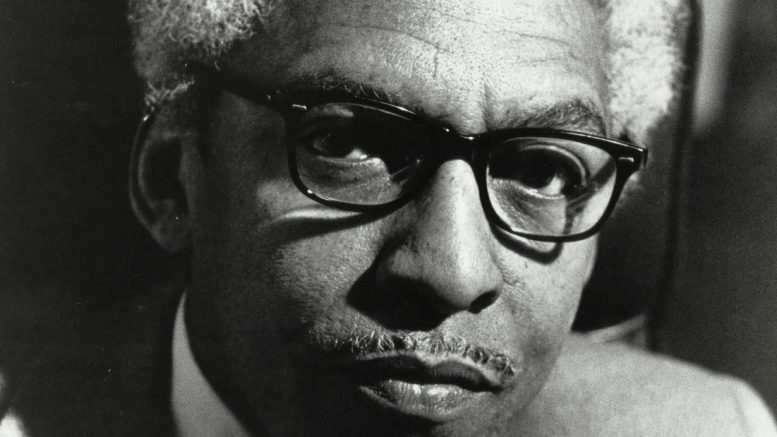I was recently invited by some Israeli leftists to participate in a discussion about what’s happening with the protest movement that is currently confronting the Netanyahu government. The title they gave to the discussion was “From Protest to Politics”. That expression might be familiar to many people of my generation from the American Left. It was the name of an important article written by Bayard Rustin in the mid-1960s.
Bayard Rustin was the organiser of the 1963 March on Washington. A civil rights activist since the 1940s, he was also a democratic socialist. Following the March and the legislative victories that followed (civil rights laws, the voting rights act, etc), Rustin felt that it was time for the civil rights movement to move on. Mass demonstrations in Washington and protest marches in the Deep South had their value. But to create real change — in particular to fight not just for an end to racial segregation but also for social justice — meant taking politics more seriously. Rustin and others were behind the publication of the “Freedom Budget” which laid out a political programme that can only be described as social democratic — in a country that had no Social Democratic Party or tradition.
What does any of this have to do with Israel today? There are certain parallels to the United States in the early 1960s. A mass protest movement is in the streets and has been demonstrating continuously for more than six months. This is unprecedented. The movement is surprisingly well-organised, focussed on a growing set of demands that are not limited to blocking Netanyahu’s attack on the country’s judicial system. The protest movement is also fighting for the rights of women and the LGBTQI+ community, and for greater equality for all, including Palestinian Arabs. The movement was described as a kind of embryonic political party, something that could easily grow into a functioning political party.
Israel is about to hold local elections. With no national election on the immediate horizon, this will be a significant test of what the protest movement can do in the real world of politics. This week, the Times of Israel reported that “a political party representing the anti-judicial overhaul protest movement will run in the upcoming Tel Aviv municipal elections on a joint ticket with the left-wing Meretz party and the ‘Green Center’ party.”
This is a very important step forward, as Tel Aviv is both Israel’s largest city and a stronghold of the secular liberal Left. The new party, known as “New Contract”, has a real chance of winning the elections there. Similar efforts are taking place in other parts of the country.
National elections are not yet scheduled to take place. They will probably happen when the Netanyahu coalition breaks apart, as is growing increasingly likely. Part of the reason why we can expect that is the growing likelihood of a massive collapse of the right-wing vote in the next Knesset elections.
According to a survey of all the national opinion polls taken since March of this year, the Likud-led coalition loses every single time. All the polls agree on this. The next Israeli government is likely to be composed of the centre parties led by Yair Lapid and Benny Gantz. One very recent poll shows those parties winning 48 Knesset seats (61 are required to form a government). They would need to ally with one or more of the Arab political parties as well as Meretz.
Interestingly, all the recent polls show Meretz winning enough votes to cross the electoral threshold and have 4 or 5 Knesset seats. In none of the recent polls does the Labour Party get enough votes to enter the Knesset — a crushing blow to a party that utterly dominated Israeli politics for decades.
Bayard Rustin’s “From Protest to Politics” and the “Freedom Budget” he helped draft and promote unfortunately did not achieve their goal. The Vietnam War put an end to the wide coalition that would have been required to re-shape American politics in a more social democratic direction.
The Israeli opposition has a chance now to do what the American Left proved unable to do six decades ago. If they channel their energy — and their anger — into political struggles, and compete for power in local and national elections, anything can happen. Perhaps even bringing an end to the long night of Netanyahu’s rule.
This column appears in this week’s issue of Solidarity.
